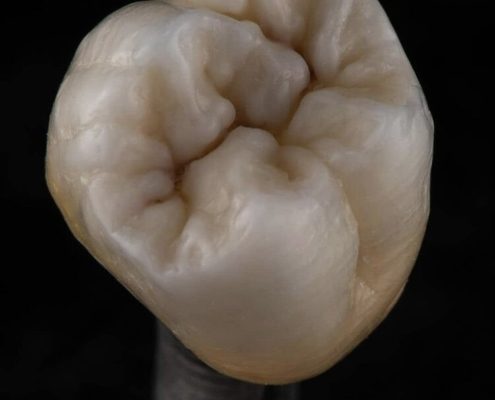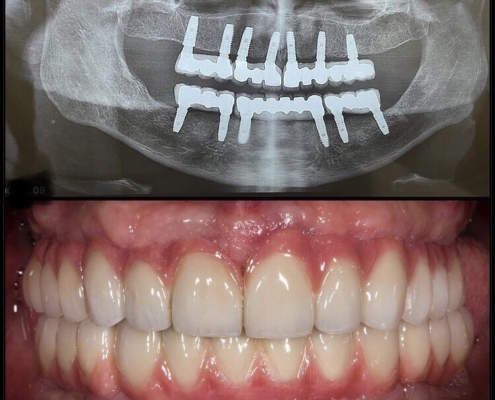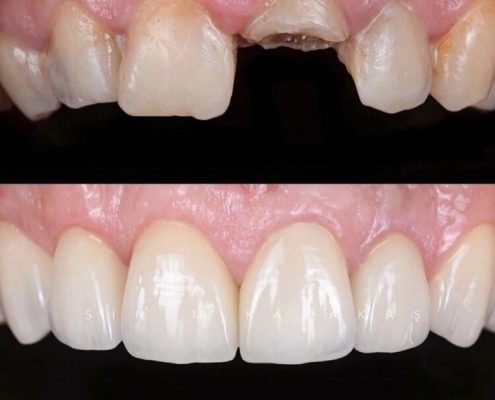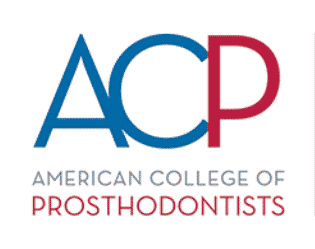Quality specialist Dental implant Richmond VA
We offer dental implant assessment and consultation
We offer dental implant consultation for all new patients. We will conduct a thorough examination of your oral health including gums, bite, mandibular function and a general esthetic impression. A more definitive assessment will require recent x-rays that you may bring or can have taken for a fee. The assessment will focus on goals you describe and will include various treatment options, costs, time frames and expected outcomes.
What will be discussed during the consultation?
During a dental implant consultation, we will discuss your specific dental issues and concerns. We will talk about treatment options as they relate to achieving your dental goals. Finally, we will advise you on costs, expected outcomes, and treatment time frames.
When are implants an appropriate treatment?
Patients often ask us “I have bad teeth. Do I need an implant?” That depends…
Our philosophy is to keep your original, natural teeth, if possible. As long as this does not compromise your health, comfort or esthetic expectations.
Can anyone with damaged teeth or without teeth get a dental implant?
Most healthy people who lack teeth are good candidates for dental implants. Implants offer solutions for loose teeth, failed root canals and severe tooth decay. Implant candidates should have healthy gums, bone mass.
Like natural teeth, implants need a daily brushing and oral hygiene.
How do I know if I need dental implants?
Dental implants are one option to replace missing teeth. If the base of the tooth is still healthy enough to support a crown and/or a bridge we recommend keeping the tooth. During a consultation, we can assess your situation. We will address your specific dental issues and concerns. Topics covered also include: your treatment options, treatment steps, costs and time frames.
Am I a candidate for a dental implant?
The majority of patients who have lost one or more teeth are candidates for dental implants. Less suited candidates often suffer from severe gum disease or irreparable bone loss. Our philosophy is to maintain natural teeth whenever practical. Doing so should not compromise health or comfort.
Why is sufficient bone mass so important for implants?
Successful implants need adequate bone material to hold them in place. Patients lacking teeth lose bone mass within months. Some patients will need bone grafting to build enough bone mass. Only adequate bone mass can anchor an implant. Bone material may be inserted 3-4 months before implant placement.
Can I get dental implants at any age?
Implant candidates should have completed skeletal growth before getting an implant. This occurs between the ages of 18 and 25. Healthy senior citizens can also receive implants. Older individuals often exhibit somewhat longer healing periods.
Dental implant cost
How much do dental implants cost?
Implants, though expensive, are the most cost-effective, long-term treatment option. Well placed and cared for implants can remain intact for 40+years. Data is not yet available to support longer periods of success.
The initial costs of an implant are higher than other treatment options. Yet it is the least costly treatment option in the long term. An implant is the only treatment that preserves bone. It does not compromise the health of adjacent teeth.
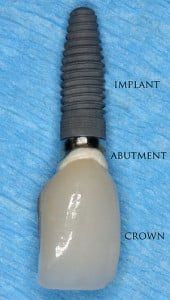
Does dental insurance cover implants?
In general dental insurance does not cover implants or offers only limited coverage. The cost of one or more implants exceeds the annual limit of most dental insurance policies. If within the scope of your policy we will submit a claim to cover a part of the cost.
Do you offer a payment plan for dental implants?
The entire implant procedure from placement to restoration can take several months. This allows the patient time to pay as services are delivered. For those seeking financial help, we offer Care Credit. See more under carecredit.com.
How long do dental implants last?
A dental implant needs daily brushing, flossing and care like a natural tooth. Well cared for implants can last 40+ years. Practicing proper dental hygiene reduces gum and bone issues. It increases implant stability and longevity.
However, implant longevity depends on the individuals health and oral care.
What is the success rate of dental implants?
Initial implant success rates ~ range between 90-98%. Best results depend on proper surgical training, chair-side experience and vetting “qualified” recipients.
Why are your dental implants different than those of some other dentists?
We only use original parts of the leading international implant companies. The implant components are warranted and fit snugly together. This promises a long lasting success and durability. The main manufacturers provide standardized parts/tools for placement. Thus, the patient has a higher likelihood of finding a dentist that utilizes the same high quality dental implant materials. The major implant companies provide a warranty on their parts.
How is a dental implant placed
Before placing an implant an assessment is made of the underlying bone. Once it has been established that the area can support an implant the next step of the process can begin. Through the gum tissue, access is gained to drill a canal into the bone to precisely the right diameter to hold the implant in place. Threaded implants are screwed into the bone. During the osseointergration phase of 2-4 months the implant connects with the bone, which means the implant can no longer be unscrewed. Then the implant can be restored. Once restored, the physical load of chewing passes through the implant onto the arch. This stresses the bone stimulating it to keep its mass.
How long is the recovery? In other words – how long can discomfort last following surgery?
Following surgery, you will be prescribed painkillers such as Ibuprofen. Some patients don’t have noticeable discomfort and thus don’t take any painkiller. Mostly discomfort disappears 2 to 3 days following surgery.
Can I drive myself home after a dental implant placement?
Usually, patients can drive themselves home after the placement of a dental implant. This will be discussed during the consultation appointment, before the surgical placement.
Is there any type of maintenance for dental implants?
The crown on a dental implant should be brushed and flossed like your own teeth. Failure to do so will result in a condition called peri-implantitis. This is the equivalent of periodontitis that can affect poorly maintained natural teeth.This could lead to the failure of an implant.
How often should I see a dentist after I have dental implants placed?
Once the implant is placed, you will likely see your dentist for a post-surgical appointment. This is to check for infections and that your gums are healing well.
Three to four months later, once healed, the implant is restored. Initially, the implant is uncovered. A determination is made if the implant has healed well and is connected to the bone. If it is ready for “loading” with a tooth, an impression is taken. At the next appointment, the implant crown is placed. This is known as the final restoration.
What is bone substrate and why is it important for implants?
Successful implants need adequate bone material to hold them in place. In some cases, bone grafting is needed. Bone grafting builds bone mass. This is often achieved with the use of a synthetic bone material. Bone grafting involves a small operation 3-4 months before the implant is placed.
Implants vs. alternative prosthetic treatments
How do implants compare with other prosthetic treatments such as crowns, dentures, and bridges?
Dental Implant
Treatment time
- Implants require minor surgery with a local anesthetic and can be placed immediately. Osseointegration (bone attachment) takes 2-4 months then impressions. The restoration takes 3 weeks. If bone grafting is needed add 3-6 months.
Dental Implant Cost
- Typically higher initial cost than alternatives, however, lower in cost in the long-term.
- Insurance can be applied to annual limit where policy indicates.
Dental Implant Longevity
- 40+ years if well maintained.
Dental Implant Health effects
- Does not impact the health of adjacent teeth. The bone material surrounding implant preserved through the use of tooth/implant.
Convenience
- Implant feels like a natural tooth.
Fixed/removable bridge, removable partial denture
Treatment time
- 3-6 weeks (Bridges fixed to existing teeth don’t require surgery.)
Cost
- Depending on complexity similar to or lower in initial cost than an implant.
- Insurance can be applied up to annual limit where policy indicates.
Longevity
- Depending which scientific study is being consulted, typically 3-5+ years between adjustments or 10+ years for a replacement.
Health effects
- Teeth supporting the bridge will need to be shaped to accommodate a crown or a clasp. The bone material will diminish over time where a tooth is missing.
For some patients, the use of implants may be questionable.
These include:
- Women on bisphosphonate therapy (e.g. Fosamax). Patients with osteoporosis are often prescribed bisphosphonates. This can induce osteonecrosis and hinder implant osseointegration. This is the attachment of the bone to the implant. Patients receiving this drug intravenously have a higher risk of implant rejection. This risk factor should be discussed and evaluated.
- Peri-implantitis is a disease is a disease and is a soreness at the implant-gum interface. This occurs when basic dental hygiene is not maintained.
- Risk factors include heavy smoking and consumption of alcohol. This may lead to prolonged healing or higher rejection rates.
- Patients suffering from uncontrolled diabetes also have an increased risk of implant failure.
We are located in the Richmond, VA area off of 64 West, exit Glenside Drive South, West on Forest Ave, to Bayberry Court,


